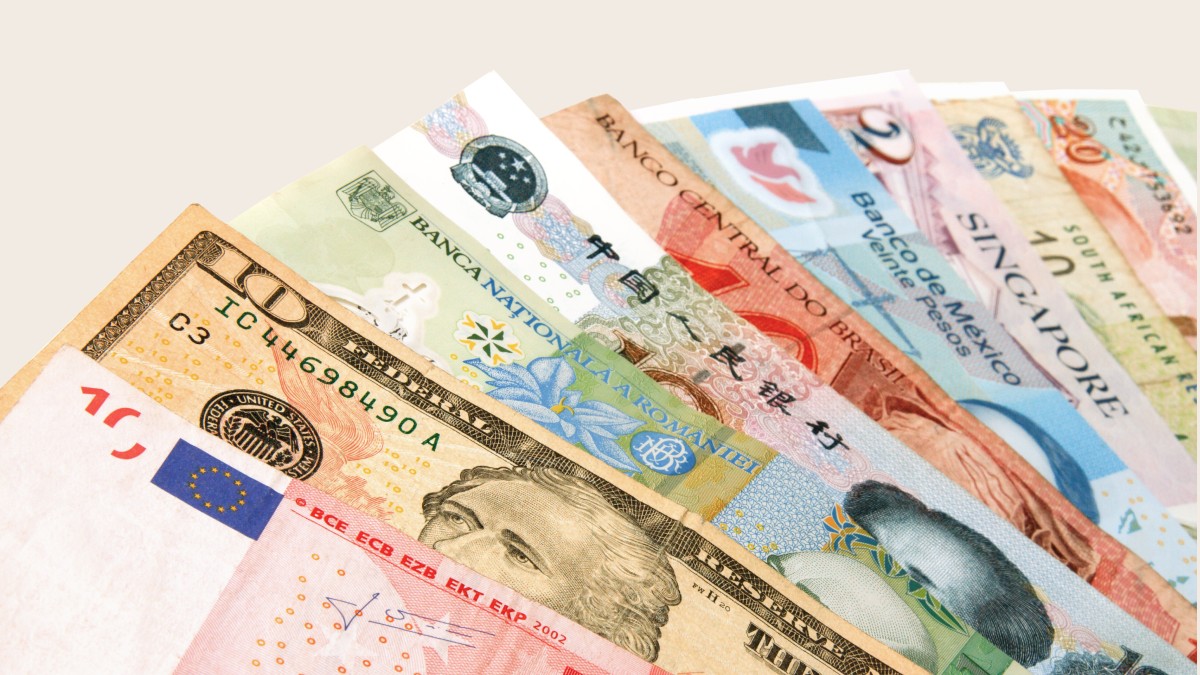The role of currencies in the global economy
Currencies play a critical role in the global economy, facilitating international trade, investment, and economic stability.
There are several key roles currencies play.
They facilitate international trade, enabling companies from different countries to trade goods and services across borders, converting one currency to another.
The global foreign exchange market (forex) allows currencies to be traded against one another, determining exchange rates. These rates influence all industries from trade, to tourism, directly or indirectly.
Some currencies, like the US dollar and euro, act as global reserve currencies held by central banks and governments to stabilize their economies. Reserve currencies are an important tool for international trade settlements and backing national currencies.
Currencies facilitate cross-border investments like, bonds, or real estate in another country, boosting investment and economic growth.
Central banks use currencies to ensure economic stability and policies. It can be by implementing monetary policies, influencing inflation, unemployment, and growth. For instance, by adjusting interest rates, a central bank can strengthen or weaken its currency to impact exports and imports.
Overview of the 9 top currencies in the world

US dollar
History and significance
The US dollar was first introduced in 1792. Initially tied to gold and silver (a commodity currency), after World War II it replaced the British pound as the world’s primary reserve currency. In 1971, the US abandoned the gold standard, and since then the dollar’s value has been based on trust in the strength of the US economy and its political stability. The US economy is considered the strongest in the world due to the country’s central role in world trade and finance, which makes the US dollar a stable and trustworthy currency.
Role in the global economy and international trade
USD is dominating the forex market: it is involved in almost 90% of all forex transactions in the world.
You might have heard the term “petrodollar” — USD is the primary currency for international trade in crude oil (as well as other commodities).
A lot of central banks hold USD as part of their foreign exchange reserves.
Countries that use it
The United States is not the only country that uses dollars. For example, USD runs in Ecuador, El Salvador, Panama, and Zimbabwe as their official currency. Besides that, in many countries around the world dollars are accepted unofficially.
Euro
History and significance
The euro is the currency of most countries of the European Union. The euro originated in 1999 in a non-physical form: it was used in accounting, electronic payments and banking, and only became physical three years later. It was created to foster European unity, promote economic growth, and simplify trade among the European Union countries.
Role in the global economy and international trade
The euro is the second most traded and held currency globally, after the US dollar. It symbolizes economic integration, stability, and strength among the EU member states.
It is the currency for almost 40% of the worldwide payments across borders and for almost 50% the EU’s exports.
It makes approximately 21% of global forex transactions.
Along with USD, it is a reserve currency which central banks worldwide hold.
Countries that use it
EUR is the official currency in 20 of the 27 EU countries. However, EUR runs in various states outside of the EU: the overseas territories of Spain (Canary Islands and Ceuta and Melilla), Portugal (the Azores and Madeira), France (Mayotte and Réunion, Saint Pierre and Miquelon, French Guiana and French Islands in the Caribbean), and the European microstates of Andorra, Monaco, San Marino and Vatican City. Also, Montenegro and Kosovo use euros but are not members of the EU.
Pound sterling
History and significance
Not only is the British pound the world’s oldest currency still in use (it has been around for more than 1200 years), but it also remains a key currency in the global finance world, reflecting the UK’s historical and current economic influence.
Role in the global economy and international trade
GBP is the fourth most traded currency globally (after ESD, EUR and JPY) in forex markets — over $7.5 trillion a day.
Sterling is very stable, and for many it is a refuge currency in times of economic turmoil.
The Bank of England’s monetary policies significantly influence the pound’s value and global economic activities.
Countries that use it
Apart from the UK, it is used in British overseas territories.
Japanese yen
History and significance
When Japan modernized its economy during the Meiji Restoration, it introduced the yen. After World War II, the yen stabilized, becoming integral to Japan’s post-war economic miracle. The Japanese economy is Asia’s second-largest, and the yen often serves as a safe-haven currency in times of financial instability.
Role in the global economy and international trade
JPY is the third most traded currency, involved in 17% of global forex transactions.
It plays a significant role in global investment, particularly in the bond market.
Japan’s economy heavily relies on exports, including industries like technology and automobiles, which strengthens JPY’s international importance.
Countries that use it
The yen is the official currency only in Japan.
Australian dollar
History and significance
The Australian dollar is the successor to the Australian pound. It is sometimes referred to as the Aussie. Initially it was pegged to the British pound before transitioning to a floating system in 1983. AUD is a commodity currency, its value is closely tied to Australia’s resource-driven economy, particularly exports of iron ore, coal, and gold.
Role in the global economy and international trade
The Australian dollar is often traded in forex markets due to its liquidity and correlation with commodity prices. Also it is popular in the Asia-Pacific region and among investors seeking high-yield returns.
Countries that use it
AUD is the official currency in Australia, Kiribati, Nauru and Tuvalu.
Unsure where to start your investment journey? Check out FBS!

